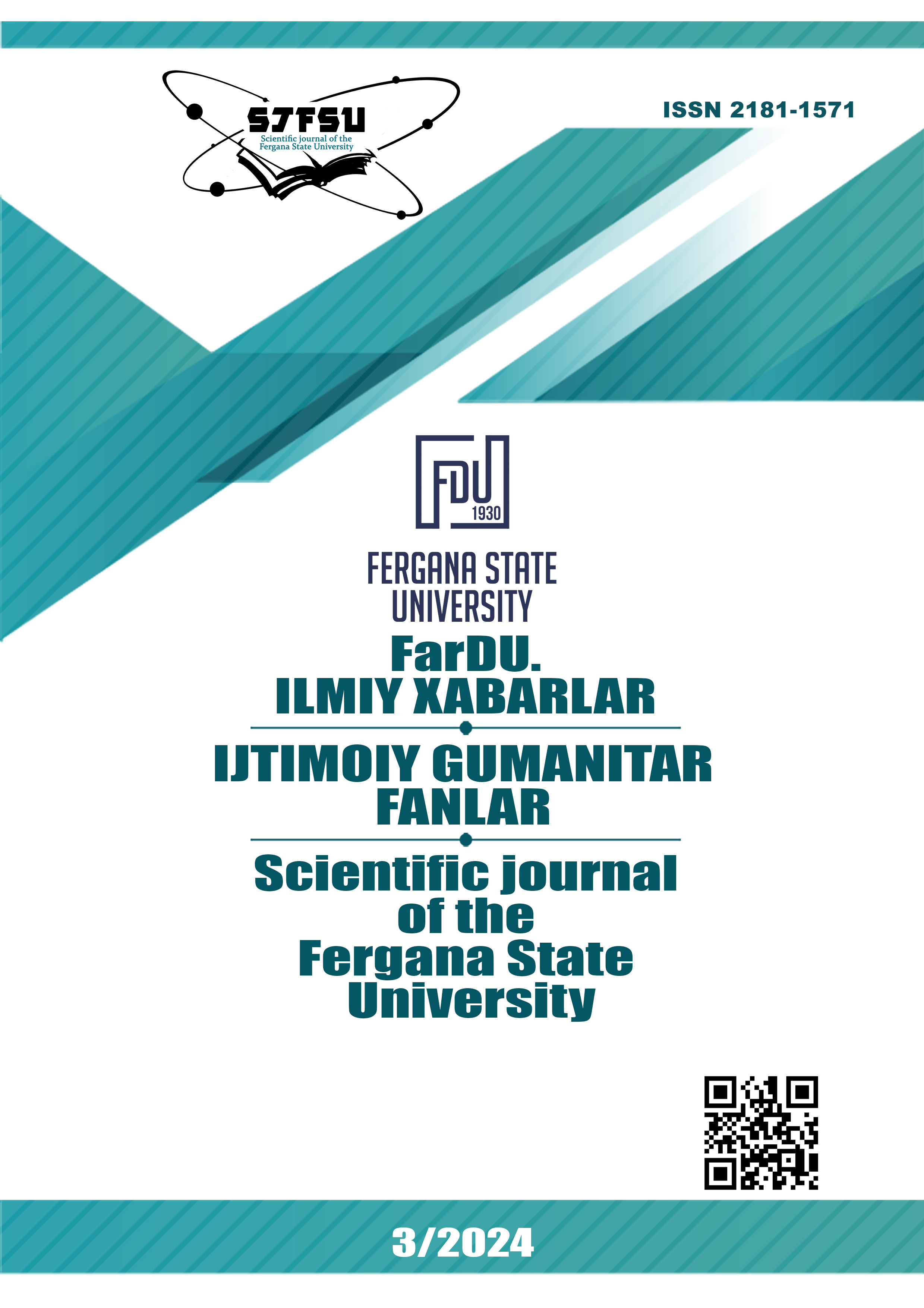METAPHOR IS A MIRROR OF LANGUAGE, CULTURE AND SPIRITUALITY
Keywords:
Metaphor, linguistic, linguostylistic, linguopragmatic and linguocognitological problems, international integration, concept of nation.Abstract
This article is devoted to the beligilization of certain categories of phytomorphic metaphor in Indo-European and Turkic languages and the identification of their pragmatic and cognitive tasks in reflecting the world landscape. The phytomorphic metaphor is described in the linguistic and cognitive aspect, and conclusions are given about its national-cultural nature, ethnic character, cognitive structure. In addition, the problem of phytomorphic metaphor determines how relevant it is to put linguistics on the agenda, even if it is not compared in the system of different languages. Because the categories of the phytomorphic metaphor, which are still formed in the languages of the world, have not been fully studied and classified separately. The article provides conclusions about the national-cultural nature, ethnic nature, cognitive structure of the phytomorphic metaphor. The problem of understanding and expressing values in multinational countries is characterized by its duality. However, since the linguistic expression of pure national values and culture is directly determined by this national consciousness and monotheism, it is natural for their interpretation to serve both internal and external relations for the country.
References
Бахтин, М. М. (1979). Эстетика словесного творчества. Рипол Классик.
Lakoff, G., & Johnson, M. (2008). Metaphors we live by. University of Chicago press.
Lakoff, G., & Johnson, M. (1980). The metaphorical structure of the human conceptual system. Cognitive science, 4(2), 195-208.
Хумбольдт В. Различие строение человеческих языков и влияние его на духовное развитие человечество // Звегинцев В.В. История языкознания XIX-XX вв. В очерках и извлечениях. В 2 томах. Том 1. − С.
Лагута О.Н. Лингвометафорология: основные подходы // http: www. Balkan Rusistics | Статьи | Монографии. Метафорология. Теоретические аспекты. Ч.I. Г.2. § 3¬5.
Карасик, В. И. (2002). Языковой круг: личность, концепты, дискурс.
Downloads
Published
Issue
Section
License
Copyright (c) 2024 Scientific journal of the Fergana State University

This work is licensed under a Creative Commons Attribution-NonCommercial-NoDerivatives 4.0 International License.

